Filter by
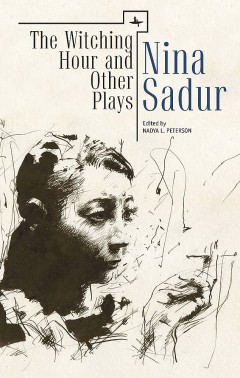
The Witching Hour and Other Plays
Nina Sadur, the playwright, occupies a prominent place in the Soviet/Russian drama pantheon of the 1980s and 1990s, a group that has with few exceptions been generally ignored by the Western literary establishment. The plays included in this volume offer some of Sadur's most influential works for the theater to the English-speaking audience for the first time. The collection will appeal to read…
- Edition
- -
- ISBN/ISSN
- 9781618114006
- Collation
- -
- Series Title
- -
- Call Number
- 920 SAD w

Chapaev and His Comrades : War and the Russian Literary Hero Across the Twent…
Across the twentieth century war was the central experience of the Russian people, spurring tales of the struggles and advances of the combat hero to become a prevailing Russian literary trope. In this wide spanning text Brintlinger traces the war experiences, memories, tropes, and metaphors in literature of the Soviet and post-Soviet period, examining the work of Dmitry Furmanov, Fyodor Gladko…
- Edition
- -
- ISBN/ISSN
- 9781618116932
- Collation
- -
- Series Title
- -
- Call Number
- 800 BRI c
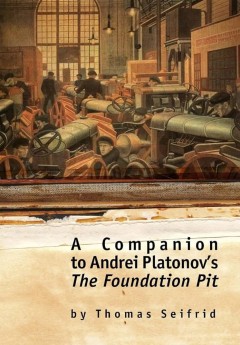
A Companion to Andrei Platonov's "The Foundation Pit" : Studies in Russian an…
Written at the height of Stalin's first "five-year plan" for the industrialization of Soviet Russia and the parallel campaign to collectivize Soviet agriculture, Andrei Platonov's The Foundation Pit registers a dissonant mixture of utopian longings and despair. Furthermore, it provides essential background to Platonov's parody of the mainstream Soviet "production" novel, which is widely recogni…
- Edition
- -
- ISBN/ISSN
- 9781618116970
- Collation
- -
- Series Title
- -
- Call Number
- 800 SEI c

By Fables Alone : Literature and State Ideology in Late Eighteenth- and Early…
Academic Studies Press is proud to present this translation of Professor Andrei Zorin's seminal Kormya Dvuglavogo Orla. This collection of essays includes several that have never before appeared in English, including The People's War: The Time of Troubles in Russian Literature, 1806-1807 and Holy Alliances: V. A. Zhukovskii's Epistle To Emperor Alexander and Christian Universalism.
- Edition
- -
- ISBN/ISSN
- 9781618116697
- Collation
- -
- Series Title
- -
- Call Number
- 800 ZOR b
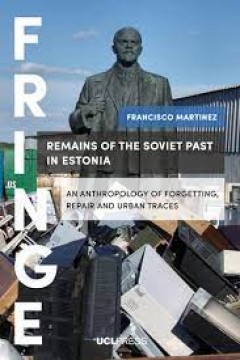
Remains of the Soviet Past in Estonia
What happens to legacies that do not find any continuation? In Estonia, a new generation that does not remember the socialist era and is open to global influences has grown up. As a result, the impact of the Soviet memory in people’s conventional values is losing its effective power, opening new opportunities for repair and revaluation of the past. Francisco Martinez brings together a number …
- Edition
- -
- ISBN/ISSN
- 9781787353534
- Collation
- -
- Series Title
- -
- Call Number
- -
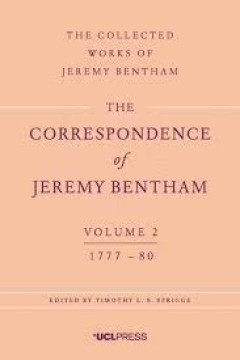
The Correspondence of Jeremy Bentham, Volume 2
The first five volumes of the Correspondence of Jeremy Bentham contain over 1,300 letters written both to and from Bentham over a 50-year period, beginning in 1752 (aged three) with his earliest surviving letter to his grandmother, and ending in 1797 with correspondence concerning his attempts to set up a national scheme for the provision of poor relief. Against the background of the debates on…
- Edition
- -
- ISBN/ISSN
- 9781911576273
- Collation
- -
- Series Title
- -
- Call Number
- -
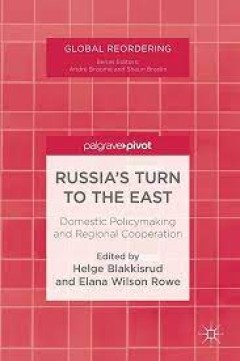
Russia's Turn to the East Domestic Policymaking and Regional Cooperation
Development studies; Russia; Far East; International affairs; Energy; Shanghai cooperation organization; Economic development; Security policy; Multilateral organizations; Diplomacy; Regionalism; Russian–European relations; Russia’s “pivot to the East”; Annexation of Crimea; Regional politics; Eurasia; Ukraine; Sanctions regime; Foreign policy
- Edition
- -
- ISBN/ISSN
- 9783319697901
- Collation
- -
- Series Title
- -
- Call Number
- -
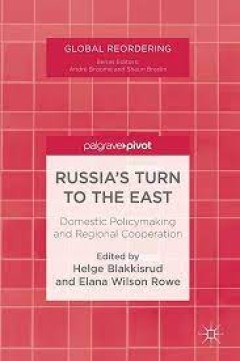
Russia's Turn to the East Domestic Policymaking and Regional Cooperation
Development studies; Russia; Far East; International affairs; Energy; Shanghai cooperation organization; Economic development; Security policy; Multilateral organizations; Diplomacy; Regionalism; Russian–European relations; Russia’s “pivot to the East”; Annexation of Crimea; Regional politics; Eurasia; Ukraine; Sanctions regime; Foreign policy
- Edition
- -
- ISBN/ISSN
- 9783319697901
- Collation
- -
- Series Title
- -
- Call Number
- -
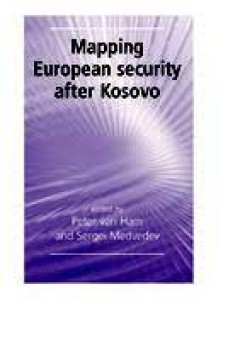
Mapping European security after Kosovo
This book provides new and stimulating perspectives on how Kosovo has shaped the new Europe. It breaks down traditional assumptions in the field of security studies by sidelining the theoretical worldview that underlies mainstream strategic thinking on recent events in Kosovo. The contributors challenge the epistemological definition of the Kosovo conflict, arguing that we should not only be co…
- Edition
- -
- ISBN/ISSN
- 9780719062407
- Collation
- -
- Series Title
- -
- Call Number
- -
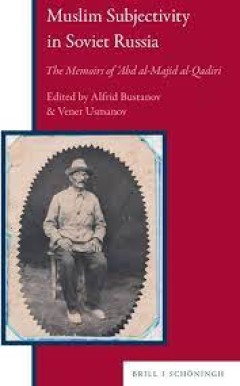
Muslim Subjectivity in Soviet Russia The Memoirs of ’Abd al-Majid al-Qadiri
The world as seen by a Qur’an specialist in late imperial and early Soviet Russia. Our book tells a dramatic story of ’Abd al-Majid al-Qadiri, a Muslim individual born in the Kazakh lands and brought up in the Sufi environment of the South Urals, who memorized the entire Qur’an at the Mosque of the Prophet. In Russia he travelled widely, performing the Qur'an recitations. The Stalinist te…
- Edition
- -
- ISBN/ISSN
- 9783657793778
- Collation
- -
- Series Title
- -
- Call Number
- -
 Computer Science, Information & General Works
Computer Science, Information & General Works  Philosophy & Psychology
Philosophy & Psychology  Religion
Religion  Social Sciences
Social Sciences  Language
Language  Pure Science
Pure Science  Applied Sciences
Applied Sciences  Art & Recreation
Art & Recreation  Literature
Literature  History & Geography
History & Geography